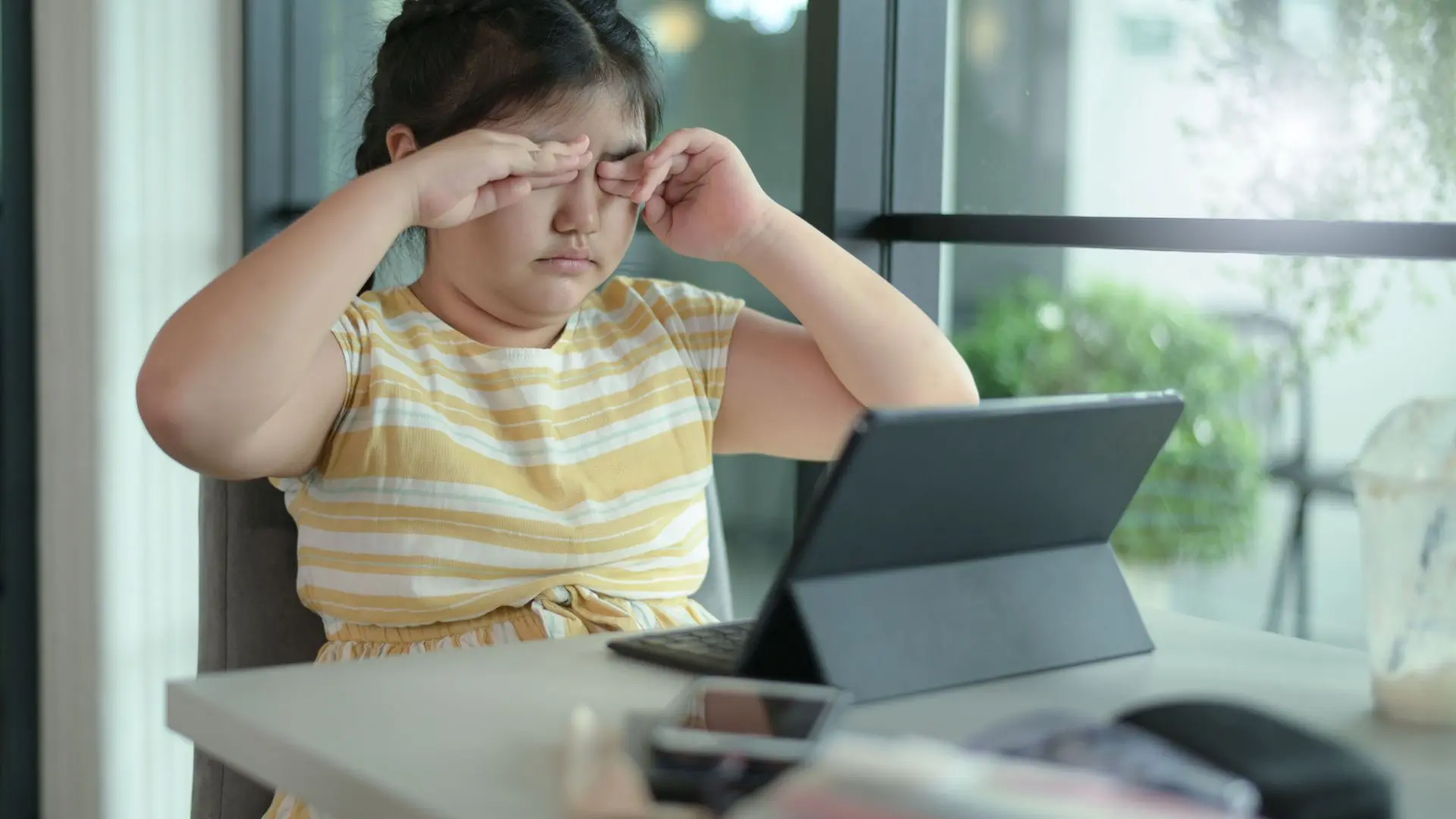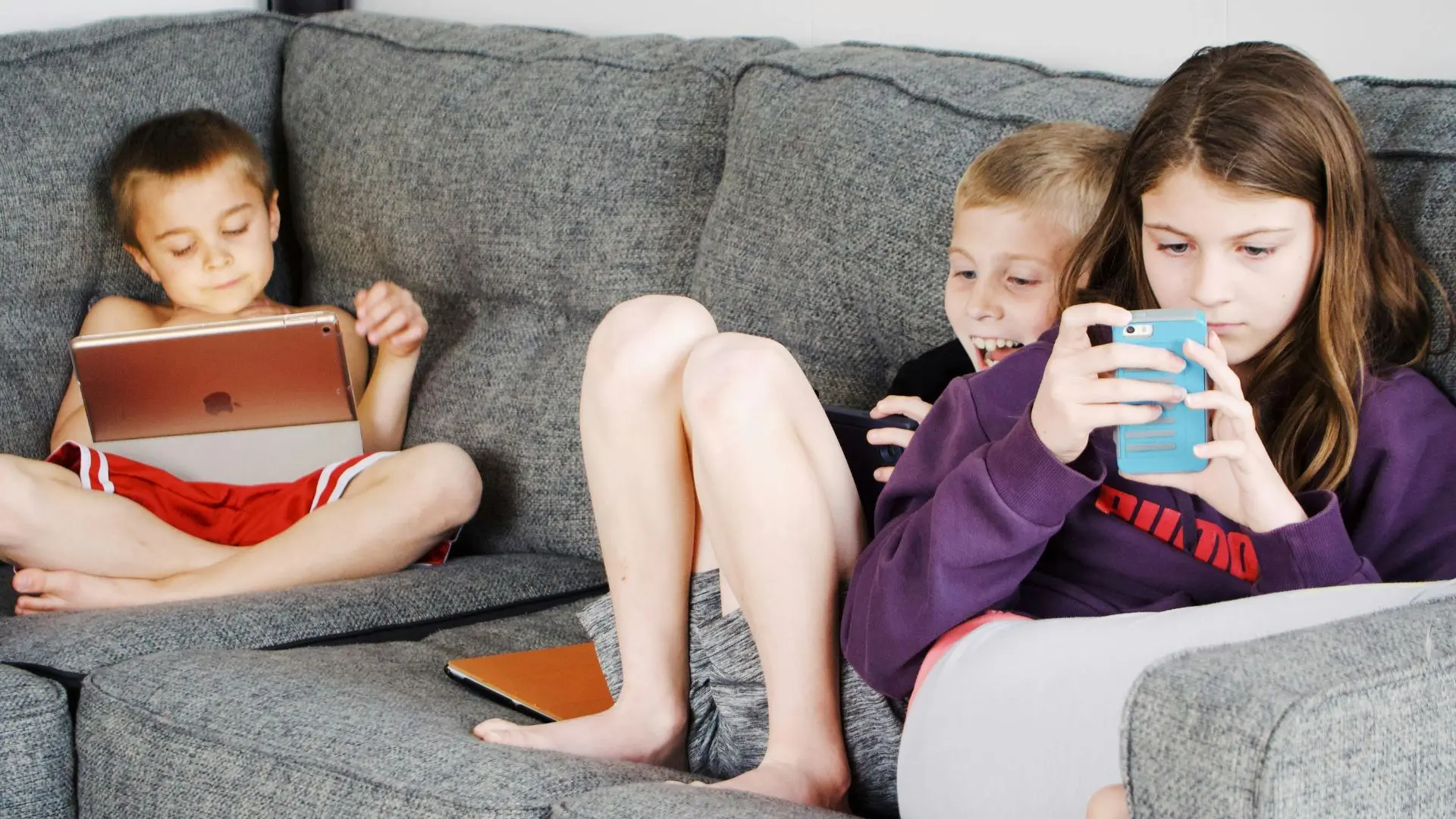Private Homeschooling comes with risks. Excessive screen time can affect your child’s development. Discover solutions to ensure a healthy balance.

Private Homeschooling might seem like the ideal educational choice, but it is undermining your child’s development. From mental and emotional growth to physical well-being, the overuse of screens during Private Homeschooling is a silent threat.
By the age of seven when children are most vulnerable, constant exposure to screens can drastically slow brain development, stifling their potential. Emotional connections weaken, attention spans shrink, and physical health deteriorates—all while your child is engrossed in a digital world. The very tool designed to facilitate learning might be quietly sabotaging it.
How can you ensure that Private Homeschooling nurtures rather than hinders your child’s growth? The answer lies in understanding the risks and taking steps to protect their developing mind and body.
Risks of Excessive Screen Time in Private Homeschooling
1. The Overlooked Consequences of Prolonged Screen Use
When your child is engaged in Private Homeschooling, they often spend several hours a day in front of a screen—whether it’s for attending virtual classes, completing assignments, or participating in educational activities. This extended screen exposure can lead to various health issues:

- Digital Eye Strain: If your child is spending hours daily on a tablet or computer for their Private Homeschooling tasks, they may experience digital eye strain.
Symptoms like headaches, blurred vision, and dry eyes are common. The constant focus on screens without adequate breaks can lead to these discomforts.
- Sedentary Lifestyle: Private Homeschooling often involves sitting for prolonged periods. This sedentary behavior can contribute to a lack of physical activity, potentially leading to weight gain and related health issues.
If your child is spending most of their day seated during online classes and screen-based learning, they might not get enough exercise.
2. Mental Health Issues Linked to Excessive Screen Time
The mental health impacts of excessive screen time during Private Homeschooling are significant and multifaceted:

- ADHD (Attention-Deficit/Hyperactivity Disorder): Research indicates that excessive screen time can contribute to symptoms of ADHD, such as difficulty concentrating and impulsivity. If your child is spending long hours on screens for Private Homeschooling, they may exhibit signs of inattention or hyperactivity.
For example, if your child struggles to focus on their schoolwork or becomes easily distracted during online lessons, it might be related to their extensive screen use.
- Anxiety and Depression: The nature of digital interactions in Private Homeschooling can lead to heightened anxiety and feelings of depression. Continuous exposure to screens and the stress of online learning environments can overwhelm your child emotionally.
If your child, after long hours on educational apps and virtual classes, shows signs of irritability or low mood. This can be a result of digital fatigue and increased stress levels.
- Sleep Disorders: Excessive screen time, particularly before bedtime, can disrupt sleep patterns. The blue light emitted by screens interferes with melatonin production, leading to sleep issues. If your child is using screens late into the evening for Private Homeschooling, it could affect their sleep quality.
For instance, if your child has trouble falling asleep or wakes up frequently during the night after using a tablet for homework before bed, it may be a result of disrupted sleep patterns caused by screen exposure.
3. Physical Health Risks
Excessive screen time during Private Homeschooling also poses physical health risks

- Poor Posture and Back Pain: Long hours of sitting while using screens for homeschooling can lead to poor posture and musculoskeletal issues. If your child is spending extensive time seated at a desk or on a couch with poor posture, they might experience back or neck pain.
- Vision Problems: Persistent screen use can lead to vision issues such as myopia (nearsightedness). If your child is consistently using screens for their Private Homeschooling lessons, they may be at risk of developing vision problems over time.
- Increased Risk of Chronic Diseases: Prolonged screen time is associated with a higher risk of developing chronic diseases such as cardiovascular conditions and diabetes. If your child’s Private Homeschooling routine includes excessive screen time with minimal physical activity, they may face these future health risks, such as heart disease or diabetes.
Practical Solutions for Balancing Homeschooling and Screen Time
While it’s essential to incorporate technology into our children’s education in today’s world, it doesn’t imply that they should spend eight hours a day on a computer or tablet for their schooling.

Here are 20 practical solutions to help balance screen time while ensuring a beneficial educational experience
1. Set Clear Screen Time Limits
- Daily Screen Time Goals: Define specific limits for daily screen use, including educational and recreational activities. Utilize apps or built-in device features to monitor and enforce these limits.
- Dedicated Screen-Free Times: Designate certain times of the day, such as meals or family activities, as screen-free to encourage face-to-face interactions and other non-digital activities.
2. Encourage Offline Learning Activities
- Hands-On Projects: Integrate hands-on projects and experiments into the curriculum. Activities like crafting, building models, or conducting science experiments can supplement screen-based learning.
- Board Games and Puzzles: Use educational board games and puzzles to reinforce concepts without relying on screens.
3. Promote Physical Activity
- Short, Frequent Breaks: Implement short, frequent breaks between screen sessions to reduce eye strain and encourage physical movement.
- Active Learning: Incorporate movement into learning activities, such as educational scavenger hunts or interactive physical exercises related to lessons.
4. Model Healthy Screen Habits
- Lead by Example: Demonstrate balanced screen use by managing your own screen time and participating in offline activities.
- Family Activities: Engage in family activities such as cooking, reading, or outdoor play to model healthy screen habits for your child.
5. Foster Social Interaction
- Join Homeschooling Groups: Connect with local homeschooling groups to organize social events, field trips, and group learning sessions.
- Peer Interaction: Arrange regular playdates or study groups with other homeschooled children to provide social interaction and collaborative learning experiences.
6. Implement Technology-Free Zones and Times
- Screen-Free Bedrooms: Ensure that bedrooms are designated as screen-free zones to promote better sleep and relaxation.
- Technology-Free Meals: Make mealtimes screen-free to encourage meaningful conversations and family bonding.
7. Use Technology Wisely
- Educational Content: Focus on high-quality educational apps and content that enhance learning without overwhelming your child.
- Interactive Learning Tools: Utilize interactive tools and software that engage your child in active learning rather than passive screen consumption.
8. Encourage Outdoor Activities
- Nature Walks and Exploration: Incorporate outdoor activities such as nature walks, gardening, or exploring local parks into the homeschooling routine.
- Outdoor Learning: Conduct educational activities outside, such as studying local wildlife or doing science experiments in the backyard.
9. Promote Healthy Sleep Habits
- Screen-Free Bedtime: Establish a routine where screens are turned off at least an hour before bedtime to help your child wind down and improve sleep quality.
- Relaxation Techniques: Encourage calming bedtime routines such as reading a physical book or listening to soothing music to prepare your child for restful sleep.
10. Encourage Creativity and Hobbies
- Creative Projects: Foster your child’s creativity by involving them in hobbies such as painting, writing, or playing a musical instrument—activities that do not require screens.
- Skill Development: Support your child in exploring new skills or interests, providing opportunities for hands-on experiences that contribute to their development beyond the digital realm.
11. Provide Physical and Mental Challenges
- Educational Challenges: Introduce brainteasers, puzzles, or logic games that stimulate cognitive development without relying on screens.
- Physical Challenges: Encourage participation in sports or physical activities to promote health and fitness, balancing the sedentary nature of screen-based learning.
12. Educate About Healthy Screen Use
- Discuss Screen Impact: Have open discussions with your child about the effects of excessive screen time on their health and well-being. Help them understand the importance of balance and moderation.
- Screen Time Guidelines: Provide clear guidelines and reasons for screen time limits, helping your child make informed choices about their digital habits.
13. Promote Social Skills
- Group Learning: Encourage participation in group learning activities or cooperative projects with other homeschooled children to develop social skills and teamwork.
- Community Involvement: Engage in community activities or volunteer work to provide social interaction and real-world experiences.
14. Monitor and Adjust Learning Environments
- Ergonomic Setup: Ensure that your child’s learning environment is ergonomically designed to support good posture and reduce physical strain.
- Adjust Screen Settings: Use settings on screens to reduce eye strain, such as adjusting brightness or using blue light filters, especially during long study sessions.
15. Seek Professional Guidance
- Consult Experts: If you notice significant issues related to screen time, such as persistent health concerns or behavioral changes, consider consulting healthcare professionals or educational psychologists for personalized advice.
- Stay Informed: Keep up-to-date with research and recommendations on screen time and child development to make informed decisions about your child’s education and health.
Conclusion
Managing screen time in Private Homeschooling is a balancing act that requires careful consideration of both educational needs and health risks. While screens are an essential tool in today’s digital learning environment, it’s crucial to implement strategies that mitigate the associated risks and promote overall well-being.
By setting clear limits, encouraging offline activities, and maintaining a balanced approach, you can help ensure that your child’s Private Homeschooling experience remains enriching and healthy.
Remember, the goal is to provide a supportive educational environment that fosters both learning and health. With thoughtful management, you can navigate the challenges of Private Homeschooling and ensure your child’s development remains on track.
You may also be interested in : Is Independent Homeschooling Affecting Your Child? Uncover 18 Consequences